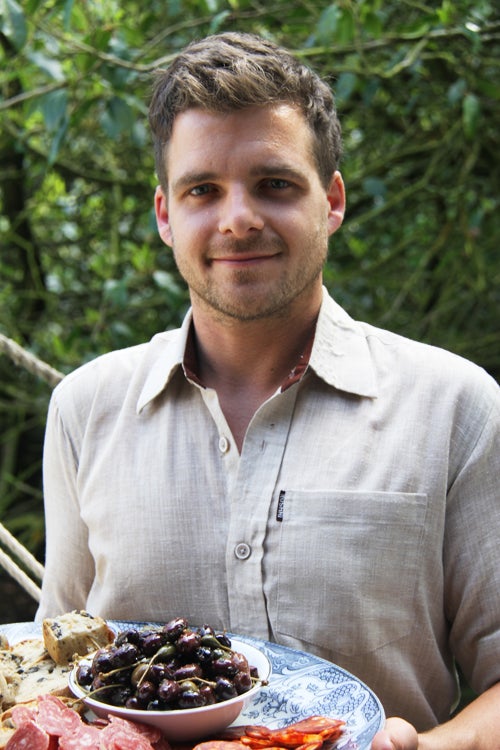
Your support helps us to tell the story
From reproductive rights to climate change to Big Tech, The Independent is on the ground when the story is developing. Whether it's investigating the financials of Elon Musk's pro-Trump PAC or producing our latest documentary, 'The A Word', which shines a light on the American women fighting for reproductive rights, we know how important it is to parse out the facts from the messaging.
At such a critical moment in US history, we need reporters on the ground. Your donation allows us to keep sending journalists to speak to both sides of the story.
The Independent is trusted by Americans across the entire political spectrum. And unlike many other quality news outlets, we choose not to lock Americans out of our reporting and analysis with paywalls. We believe quality journalism should be available to everyone, paid for by those who can afford it.
Your support makes all the difference.Tom Hunt is a self-proclaimed eco-chef who started his career working at Hugh Fearnley-Whittingstall’s River Cottage. He then went on to co-found Forgotten Feast, which works to revive British heritage recipes and reduce food waste. He works closely with the food charities FareShare, FoodCycle and StreetSmart. He has a restaurant, Poco, in Bristol and will be spending 2013 writing a cookbook.
What are your most and least used piece of kitchen kit?
My most used thing is a barbecue. When we’re at music festivals doing a stall it’s burning all day long. It has to be charcoal. You can’t get that sort of flavour with anything else. It turns the simplest piece of meat or fish into a delicious dish. My least used but most treasured is my clay oven. It takes hours of preparation, but once it’s ready there’s a whole cycle of dishes you can cook with it: pizza, bread, cakes, and then you can lock it down for a slow, overnight roast.
If you only had £10 to spend on food, where would you spend it and on what?
Since my main focus is food surplus, I’d go down to Borough Market on closing day and get all the end-of-day bargains. I’d head down to the fish shop, they sell everything half price by closing – so I’d get a huge fish and roast it for my mates.
What do you eat for comfort?
Home-made pasta. I’d make a really simple sauce to keep preparation to a minimum, so time would be spent on the actual technique of making the pasta. A big plate of pasta with loads of cheese is something that lulls me right into comfortable sleep.
If you could only eat bread or potatoes for the rest of your life, which would you choose?
Bread, mostly because of my sourdough starter, Cleo. A big part of Forgotten Feast is giving out Cleo to help people value the food they’re eating by making and enjoying it, before passing it on to friends. Bread is a staple and can be cooked in so many different ways. Even as it stales you can cook a multitude of dishes with it – from Tuscan bread soup to bruschetta.
What’s your desert island recipe?
I’m a massive fan of coconut, although it doesn’t really fit in with my whole eco ethos, so I’d make the most of being on the island by creating a delicious marinade for some fish, which I’d then barbecue on the beach.
What’s your favourite restaurant?
Definitely Moro in Exmouth Market. I’ve always loved their food and aspired to their Moorish style of cooking. Recently I’ve had the pleasure of working with them, too, at the Wilderness festival. The food is simple, but exotic at the same time. My favourite dish – one of many – has to be the scallops with chorizo and morita. The heart of their kitchen is the clay oven so they do amazing wood-roasted fish and stuff like that.
What’s your favourite cookbook?
The River Cottage Meat Book. I’m obviously slightly biased, but for me it’s a bible of thrift. It really helped me develop my own moral compass when it came to buying local. I can see it being an inspiration for the book I’m writing. The depth of knowledge in it is huge.
Who taught you to cook?
I’ve always cooked since I was a little boy, but it was probably my first chef and best friend, Ben Hodges, who really taught me. He and his brother Jake also helped to set up Moro. He taught me two things: how to cook with passion and always understand the quality of the ingredients you cook with.
Join our commenting forum
Join thought-provoking conversations, follow other Independent readers and see their replies
Comments